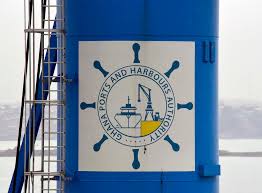The Ghana Ports and Harbours Authority (GPHA), says it was compelled to implement the revised tariff due to the current global economic challenges.
These include inflation and currency depreciation which GPHA says have increased its operational cost.
In a statement issued Thursday in reaction to concerns raised by the Ghana Union of Traders Association (GUTA), the GPHA also explained that as in all other increments in the past, “the rates of increment in this year's tariff adjustment were informed by the outcome of a comparative port tariffs studies we conducted in our neighbouring Ports of Lome and Abidjan, to ensure that at every given time, our ports will remain competitive in terms of price and quality of services.”
Consequently, it said “…even with the increment of 1st August 2023, overall, our port tariffs remain competitive compared to our neighbours.”
GUTA president, Dr. Joseph Obeng had protested the upwardly reviewed tariffs, saying it was “unfortunate and unacceptable” because it will overburden businesses. He therefore called for its suspension and a stakeholder engagement to ensure all outstanding issues are exhausted.
But the GPHA says its operations, like any other business, is affected by increases in the price of fuel, water, electricity, machinery and equipment among others, and “While we understand that tariff increment may have short term effect on businesses, it is essential to maintain a delicate balance between cost recovery and providing quality services.
The statement said the “GPHA is equally concerned about the low traffic volumes, but that is no reason for the Authority to operate at a loss,” after investing millions of dollars in upgrading port infrastructure”, and that a well maintained and efficient port system will in the long run contribute to a reduction in operational costs for businesses, enhance productivity and facilitate smoother trade operations.
Our investigation revealed that the decline in cargo volumes cannot be attributed to GPHA's service charges. GPHA's charges as a component of the total cost of cargo clearance in the port is about 6%. We are currently conducting a study on the individual contributors and their share to total cost of cargo clearance in our ports, so that together, we can engage and find possible solutions.
Below is the full statement issued by the GPHA.



Latest Stories
-
Debt restructuring programme was poorly structured – Finance Minister Ato Forson says
1 hour -
Mahama appoints fresh batch of ambassadors to key global capitals
2 hours -
Isak wants to explore move away from Newcastle
2 hours -
Benin names Spike Lee and wife ambassadors for African-Americans in the US
2 hours -
Trade deal on US tariffs within reach, says EU, as 1 August deadline nears
2 hours -
Trump bickers with Powell over Fed renovation costs
3 hours -
‘We will not default’ – Ato Forson assures bondholders as GH¢20bn DDEP payment plan unfolds
3 hours -
Take time to get VAT reforms right before scrapping COVID-19 levy – Prof. Asuming
3 hours -
France will recognise Palestinian state, Macron says
3 hours -
Foreign Affairs Ministry denies issuing Ghanaian passports to non-citizens
4 hours -
Uganda to host Asia/Africa play-off for 2027 Rugby World Cup
4 hours -
Landslide destroys farmlands and livelihoods in Santrokofi, sparks famine fears
4 hours -
UHAS Dean urges strategic role for laboratory managers in 24-hour health system reform
5 hours -
Society of Medical Laboratory Managers chair calls for inclusion in core health management
5 hours -
Mahama promises to renovate Atta Mills Presidential Library
5 hours

